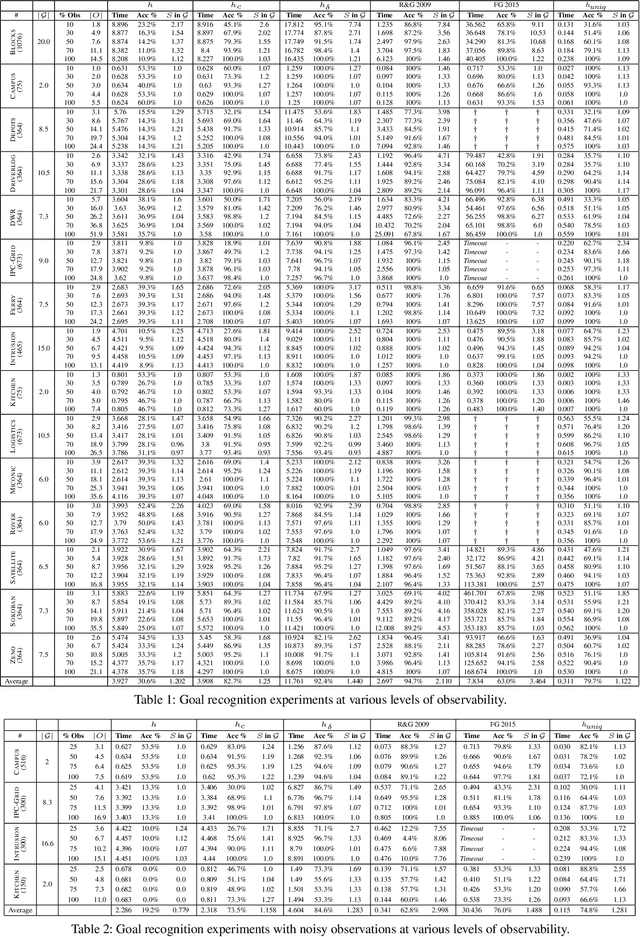Robust Goal Recognition with Operator-Counting Heuristics
Paper and Code
May 10, 2019
Goal recognition is the problem of inferring the correct goal towards which an agent executes a plan, given a set of goal hypotheses, a domain model, and a (possibly noisy) sample of the plan being executed. This is a key problem in both cooperative and competitive agent interactions and recent approaches have produced fast and accurate goal recognition algorithms. In this paper, we leverage advances in operator-counting heuristics computed using linear programs over constraints derived from classical planning problems to solve goal recognition problems. Our approach uses additional operator-counting constraints derived from the observations to efficiently infer the correct goal, and serves as basis for a number of further methods with additional constraints.
 Add to Chrome
Add to Chrome Add to Firefox
Add to Firefox Add to Edge
Add to Edge